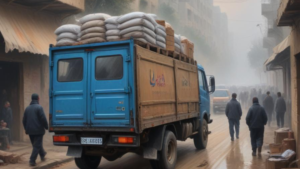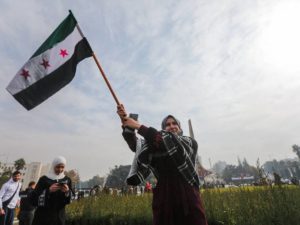United Against Inhumanity today called for immediate actions to ensure solidarity in facing up to the unprecedented risks posed by Coronavirus to humanity at large. It issued the following statement:
The Statement:
Humankind will beat this virus collectively or will fail separately – region by region, state by state or one individual at a time. Viruses don’t respect borders.
Maintaining ‘social distance’ does not mean pushing humans back into the sea or ignoring our need for safety when bombs are falling on people’s heads.
Our Covid-19 crisis response will only succeed if it defends the weakest and most vulnerable among us. This requires meaningful international co-operation with dedicated financial and technical support for nations most at risk including those with weak health care and economic systems. We must not forget those who are crossing borders to reach safety from war, are incarcerated in large open air prisons in places such as Gaza and Idlib, are trapped in desperate conditions on overwhelmed islands in Greece or are deprived of basic hygiene, health care and dignity in over-crowded camps and detention centres around the world.
Helping other humans, and particularly the most vulnerable, is an ethical imperative that is fundamental to our own self-preservation. Now is the time to ease the plight of civilians in places such as Yemen, Syria, Libya and other conflict settings, through immediate and unconditional ceasefires. Countries that are involved in such wars directly or by proxy must be challenged to deliver on their core international law responsibilities or forever face the opprobrium of history.
We call on responsible governments, the UN Security Council, regional organisations and civil society movements around the world to act fast to ensure that:
- Immediate, unconditional ceasefires are concluded in all armed conflict settings, such as Afghanistan, DRC, Libya, Syria and Yemen.
- Countries hosting refugees and asylum-seekers offer the same support and services to these guests as they are offering to their own nationals; to protect them from the virus.
- Additional financial and in-kind support is extended by donor governments to countries with large numbers of refugees and asylum seekers, to enable them to protect them from the virus.
- Immediate measures are taken to improve the unsafe conditions in refugee camps and detention centres in countries such as Greece and Libya.
- Humanitarian NGOs in all parts of the world work together to create a reporting mechanism, to receive and disseminate information about situations in which refugees, displaced persons and asylum-seekers are denied access to safe living conditions, or are subject to other policies which make them more vulnerable to Covid-19.
- Leaders of governments, international organisations, faith groups, businesses and other civil society organisations adopt policies and practices which emphasize our responsibility for each other, beyond borders or other barriers of race, religion or identity.
Image copyright: MEE/Yousef Gharibi











